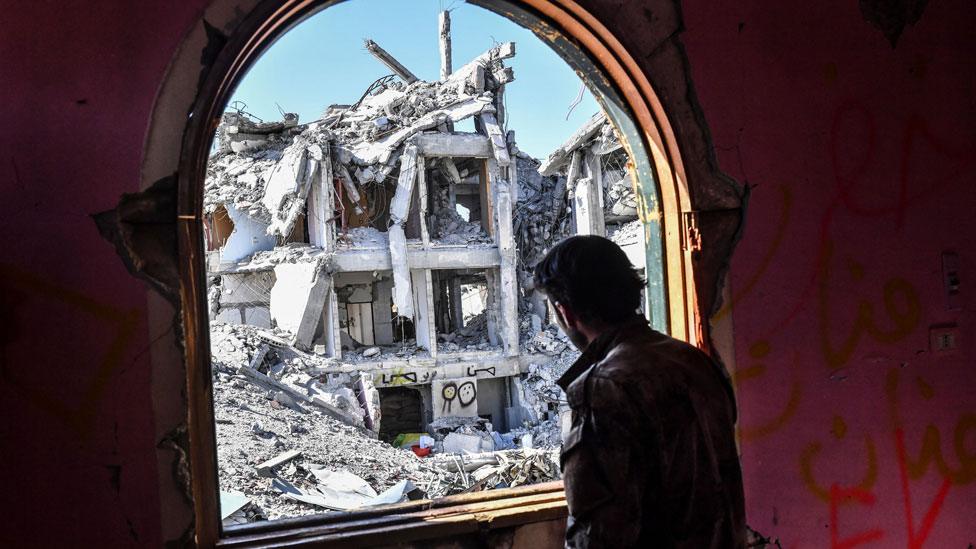IS chief Baghdadi probably still alive - US commander
- Published
Gen Townsend on Baghdadi: "We're looking for him every day. I don't think he's dead"
The leader of the Islamic State (IS) group is probably still alive, a senior US general has said, contradicting a claim by Russia that it probably killed him in a raid in Syria in May.
Abu Bakr al-Baghdadi may be hiding in a remote border area between Iraq and Syria, said Gen Stephen Townsend, commander of the anti-IS coalition.
He may have fled as IS strongholds have been under attack in both countries.
Baghdadi's whereabouts have been unknown for some time.
In June, Russia said there was a "high probability" that Baghdadi had been killed a month earlier in a Russian air strike on Raqqa, IS's de facto capital in northern Syria.
Since then local anti-IS groups have intensified a ground assault on the city, where an estimated 2,000 militants are holed up.
There have been several previous reports of Baghdadi's death. But on Thursday, Gen Townsend said there were "indicators in intelligence channels that he's still alive".
"We're looking for him every day. I don't think he's dead," he told reporters, repeating that he had "no clue" as to where the IS leader was.
"The last stand of Isis will be in the Middle Euphrates River Valley," he added, using an alternative name for IS. "When we find him, I think we'll just try to kill him first. It's probably not worth all the trouble to try and capture him."
Tens of thousands have left Raqqa as fighting intensifies
Baghdadi was believed to be in Mosul, Iraq, before a US-led coalition began an effort to reclaim the city in October 2016.
He has made only one public appearance in recent years - in a video delivering a sermon in Mosul on 5 July 2014, shortly after IS captured the city.
His last audio message was released on 2 November last year.
Who is Baghdadi?
Baghdadi - a nom de guerre rather than his real name - is believed to have been born in Samarra, north of Baghdad, in 1971.
Reports suggest he was a cleric in a mosque in the city around the time of the US-led invasion in 2003.
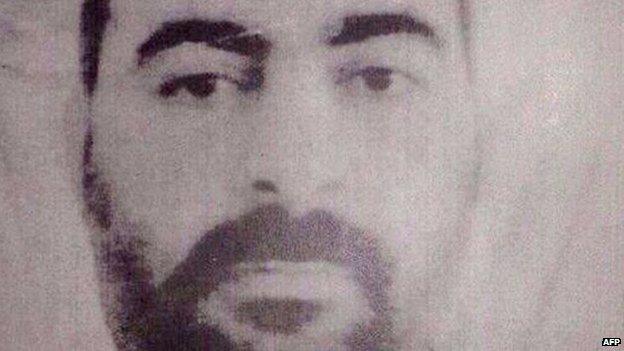
The Iraqi interior ministry released this image of Baghdadi in January 2014
Some believe he was already a militant jihadist during the rule of Saddam Hussein. Others suggest he was radicalised during the four years he was held at Camp Bucca, a US facility in southern Iraq where many al-Qaeda commanders were detained.
He emerged as the leader of al-Qaeda in Iraq, one of the groups that later became Islamic State of Iraq and the Levant (IS), in 2010.
In October 2011, the US officially designated Baghdadi as a terrorist. It has offered a reward, external of up to $25m (£19.6m) for information leading to his capture or death.
- Published8 March 2016
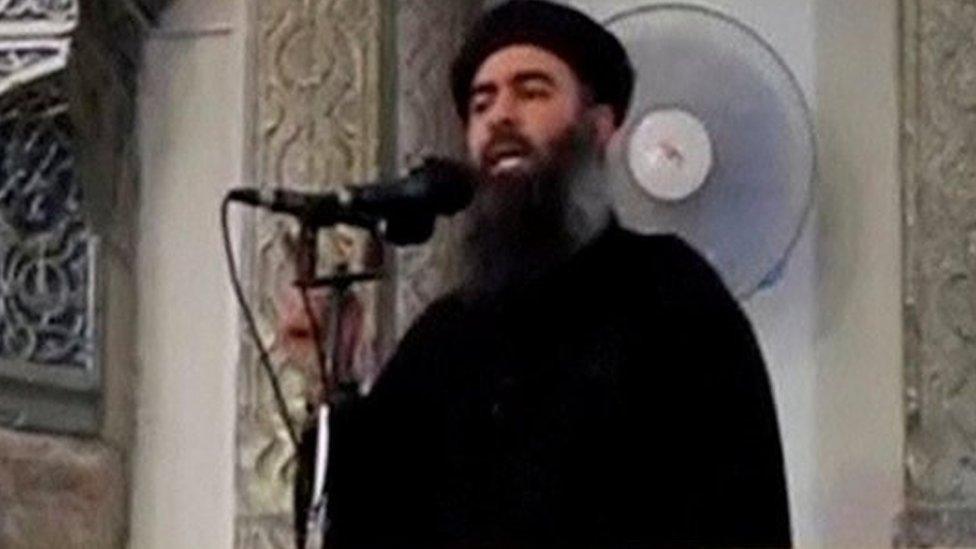
- Published1 September 2017
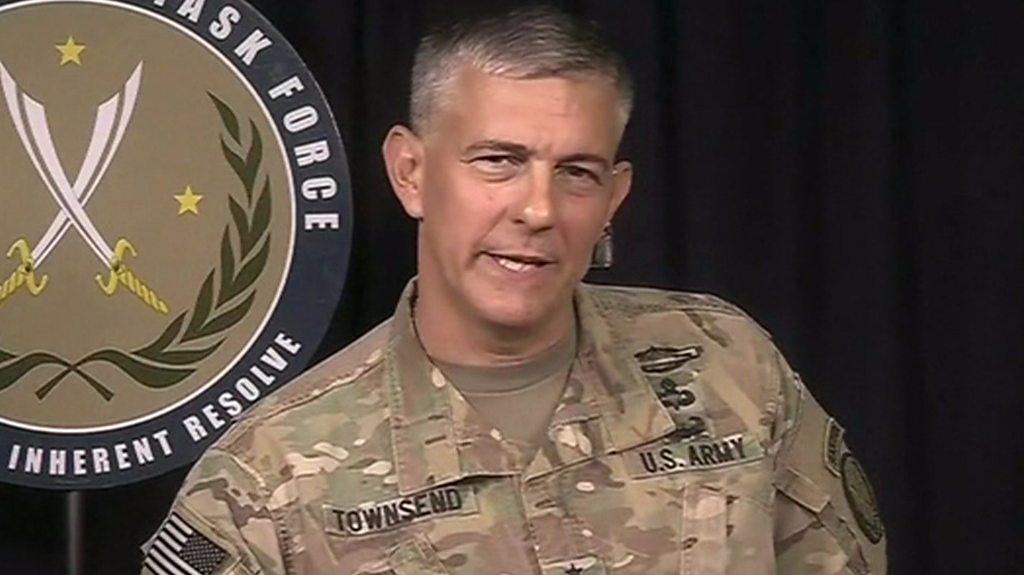
- Published17 October 2017
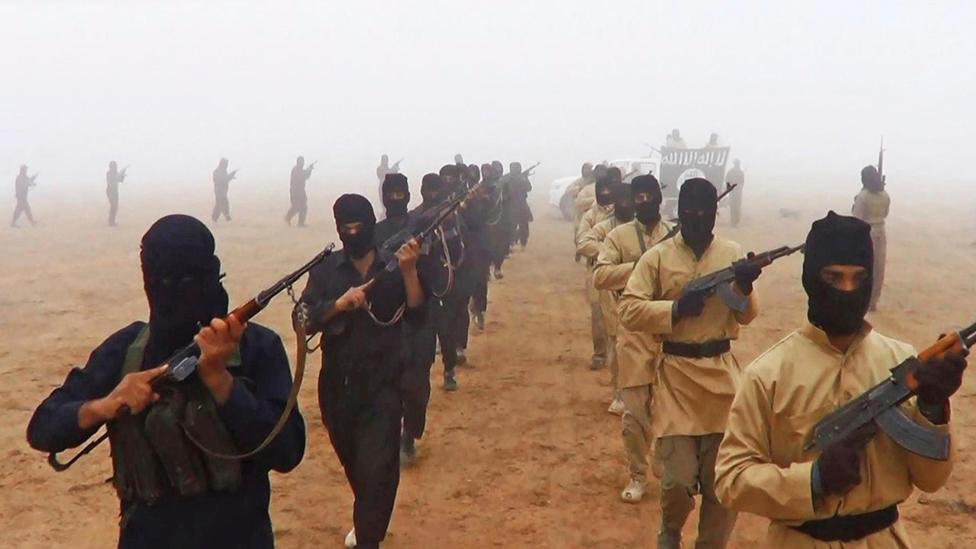
- Published15 June 2017
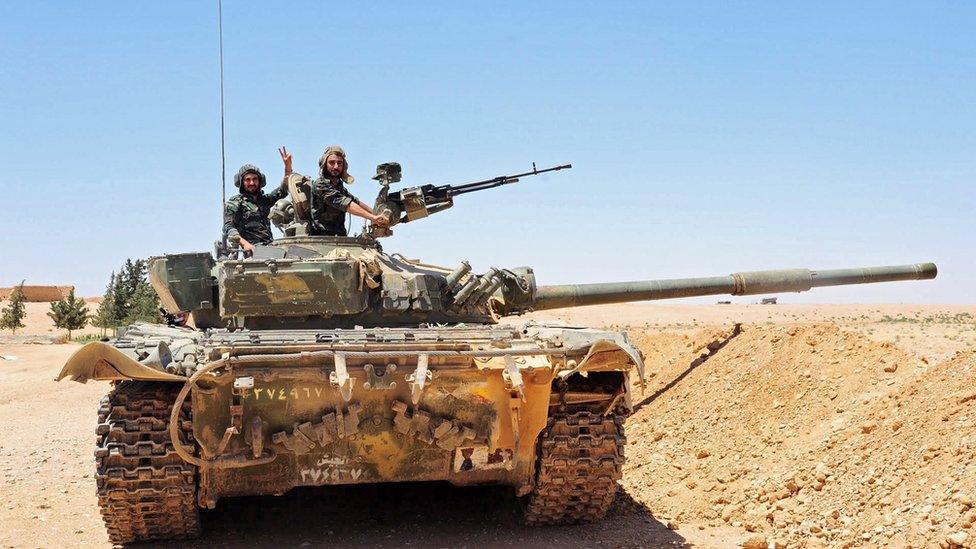
- Published8 June 2017
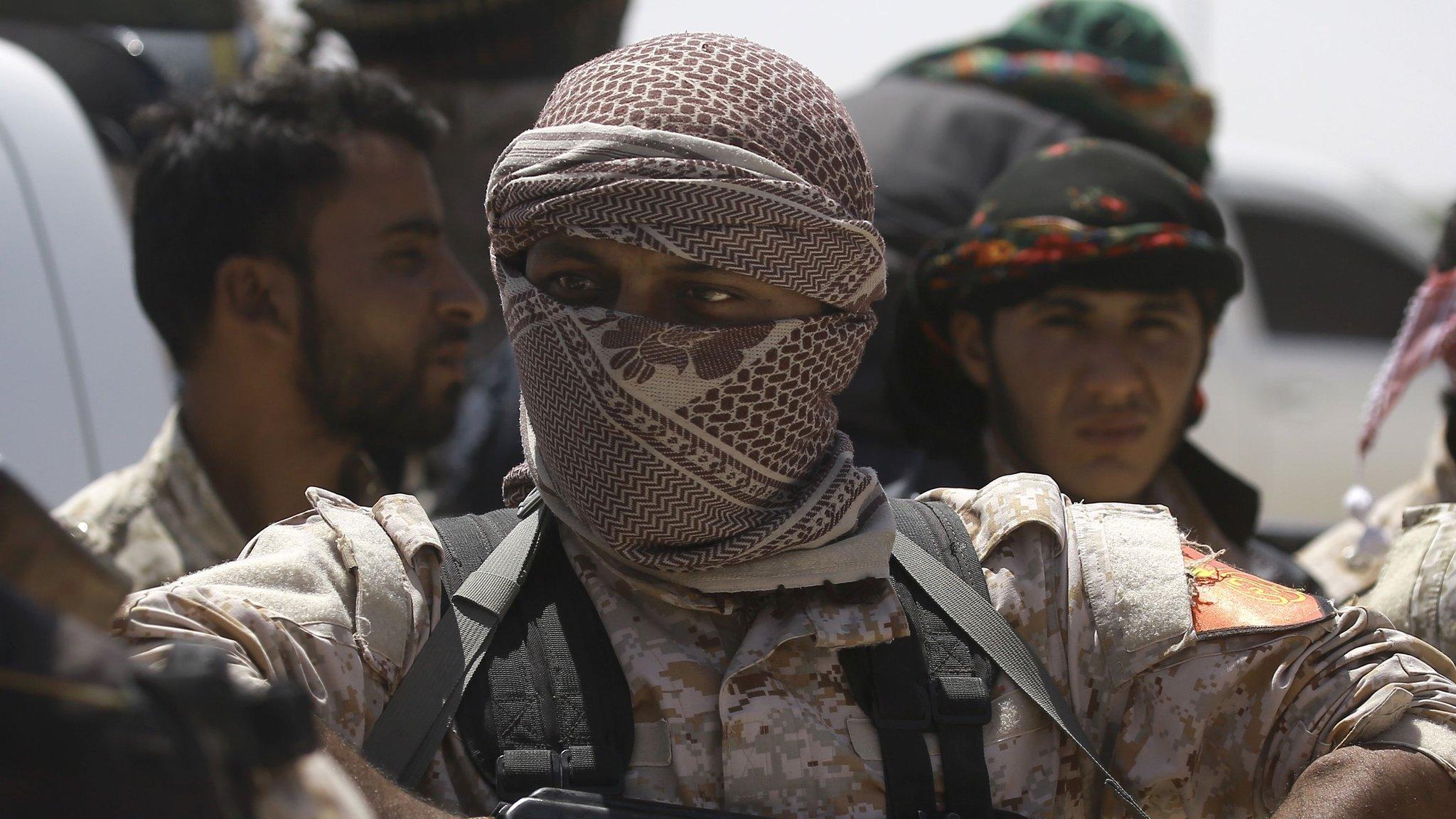
- Published10 July 2017
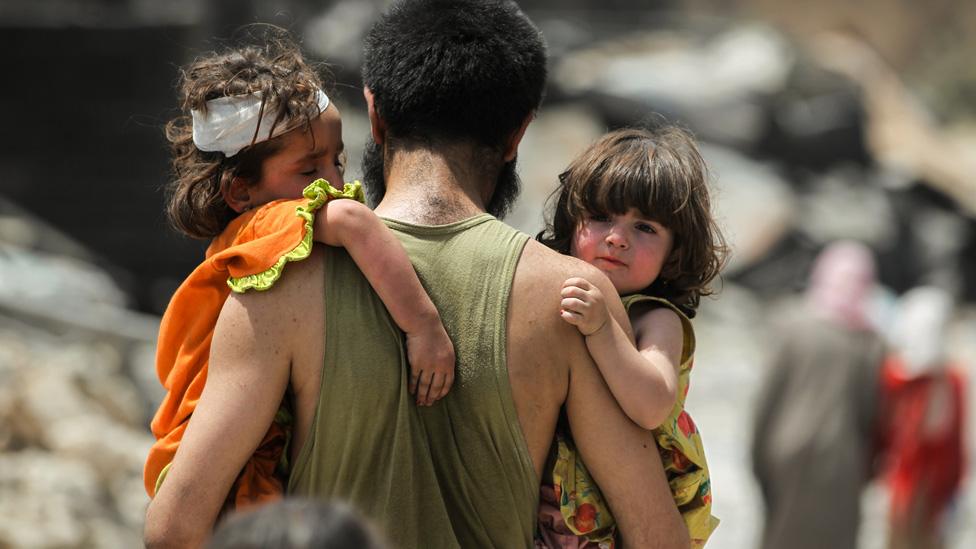
- Published28 March 2018
